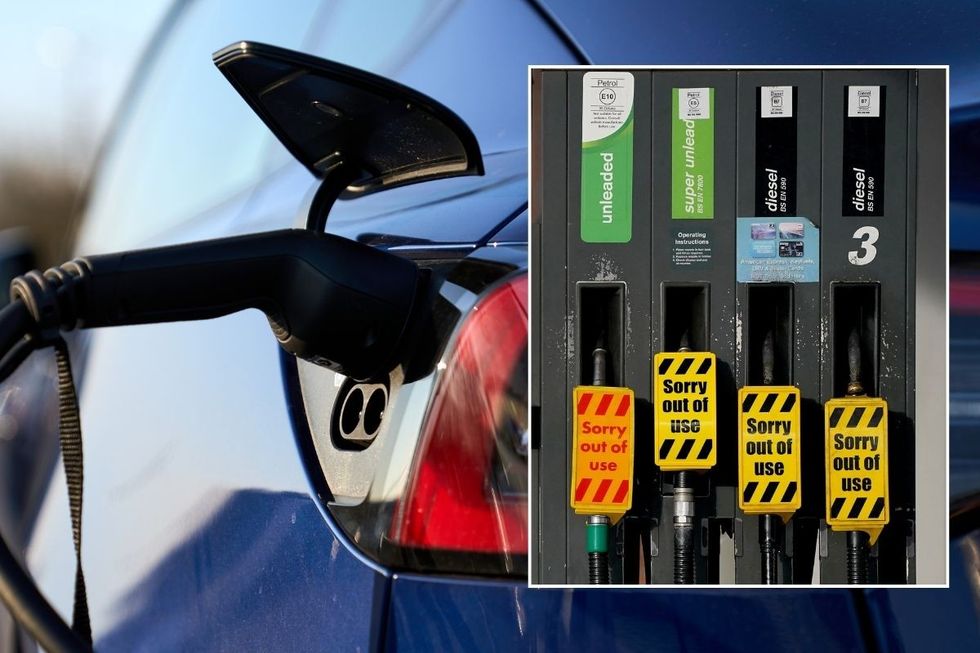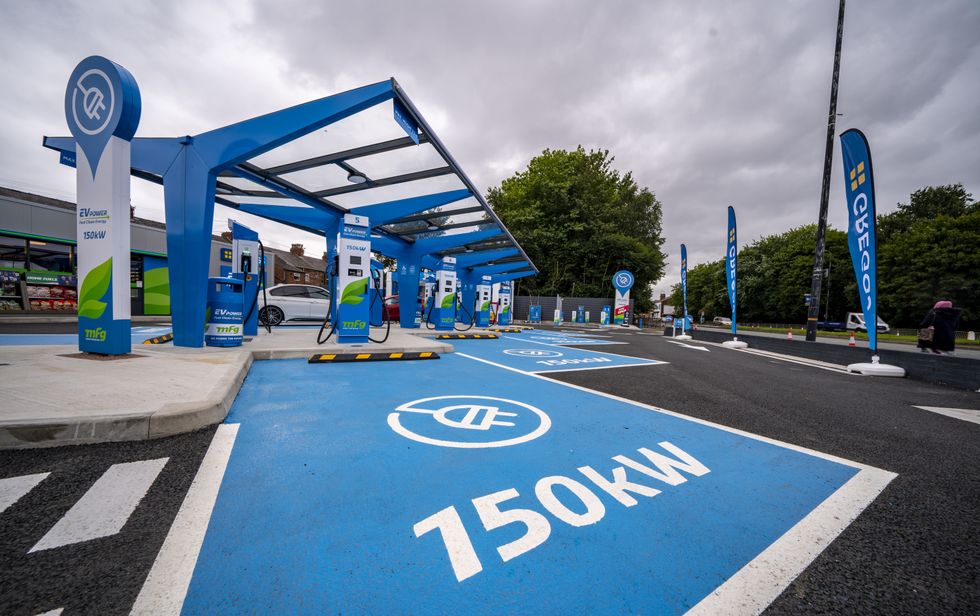Petrol car sales to collapse in just three years as electric vehicles look certain to dominate UK roads
WARNING: Motorists to see HUGE diesel and petrol price rises
'The next four years will remain volatile as the sector adapts to economic headwinds and ever-evolving consumer demands'
Don't Miss
Most Read
Trending on GB News
Electric vehicles could overtake the popularity of petrol cars in just a few years as more motorists begin to switch to more environmentally friendly options.
New research has found that the market share of electric vehicles and petrol cars is set to reach parity in 2027 when both fuel types will have a nearly 34 per cent share of the industry.
Based on the shifting market share of the last four years, electric vehicles will rise to 24 per cent this year and 30 per cent in 2026.
Within the next three years, new registrations of diesel models are expected to drop to a meagre three per cent as drivers turn their backs on polluting vehicles.
Do you have a story you'd like to share? Get in touch by emailingmotoring@gbnews.uk

Drivers across the UK are set to avoid buying petrol cars in the coming years
PA
The data, from Cox Automotive, suggests that the market share of petrol will fall to 30 per cent in 2028 with less than 650,000 registrations, whereas almost 780,000 electric vehicles will be sold (36 per cent).
Philip Nothard, insight director at the company, said: "The next four years will remain volatile as the sector adapts to economic headwinds and ever-evolving consumer demands.
"We will continue to bear witness to the rise of new manufacturers, including those from China and other international markets, while incumbent manufacturers adjust their in-market strategies."
At present, electric vehicles have a total market share of new car registrations of 21.3 per cent, according to the Society of Motor Manufacturers and Traders (SMMT).
This is greater than diesel (6.2 per cent), plug-in hybrids (nine per cent) and hybrids (13.2 per cent), but remains firmly behind petrol with 50.3 per cent of the market.
However, the data shows a clear year-on-year trend with new petrol registrations falling by 15.3 per cent, while new electric car sales jumped by a staggering 41.6 per cent in January 2025.
Nothard noted that 2025 could see the UK register two million new cars, which he described as a "pivotal milestone" for the UK's automotive recovery.
In 2024, 1.95 million new cars were registered. While this was the highest total since the pandemic in 2020, sales are still down by around 200,000 cars compared to 2019 and the peak of over 2.5 million in 2016.
Nothard said: "Achieving this target will be heavily dependent on the ability of new market entrants to establish their brands and build trust with UK drivers.
"The confidence of the fleet and leasing sectors will also play a critical role in sustaining growth and driving the transition toward alternative fuel vehicles."
The Tesla Model Y was the best-selling electric vehicle of 2024, with more than 32,000 new registrations, almost double the number of sales of the second-placed Audi Q4 e-tron.
The positive momentum of electric vehicles continues as manufacturers continue to cut prices in order to meet targets included in the Zero Emission Vehicle (ZEV) mandate.
LATEST DEVELOPMENTS:
- British classic car brand warns 'hard deadline' to ditch petrol and diesel vehicles could be difficult
- Major car brands axe plans for £48billion merger despite risk of 9,000 job losses and factory closures
- Drivers call for radical overhaul of petrol stations with new electric vehicle update - 'Big difference'

Electric car sales are expected to grow massively in the coming years
PABrands are required to have at least 28 per cent of sales come from electric cars by the end of this year before the larger target of 80 per cent by the end of the decade.
Despite the threat of fines worth £15,000 for manufacturers for every polluting vehicle they sell above the threshold, no brands are expected to face any penalties thanks to flexibilities in the legislation.
This includes the ability to trade credits with other manufacturers and the ability to cut emissions across their whole fleet.








